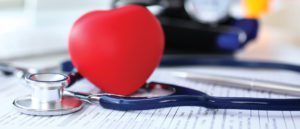Dr. Joseph Freedman MD, MBA


There are Several Different Types of Strokes:
• Hemorrhagic strokes are when a damaged blood vessel begins to bleed then ruptures
• Ischemic strokes are formed by blood clots that obstruct a blood vessel that supplies blood to the brain
• TIA (Transient Ischemic Attack), also known as a mini-stroke, is caused by a temporary clot that blocks blood flow
When oxygen and blood can’t reach the brain, the brain cells begin to die very rapidly. When you are experiencing symptoms of stroke, minutes matter! There is a medication called tissue plasminogen activator (tPA) that can break through a blood clot, but not everyone with stroke can receive the clot-busting drug tPA. If the medical team deems it fit for you, the medication must be given within 3 to 4 ½ hours of the onset of symptoms.
Signs and Symptoms
Adding to the original FAST acronym, BE FAST adds two additional stroke symptoms, which help individuals recognize and prevent 95 percent of acute strokes.
B – Balance loss
E – Eyesight changes
F – Face drooping
A – Arm weakness
S – Speech difficulty
T – Time to call 911
Staying Healthy and Avoiding Stroke Complications
• Keep weight down
• Workout (30 minutes of cardiovascular exercise daily)
• Eating a Healthy diet of vegetables, fruit and lean protein
• Maintain normal blood pressure
• Regulate Lipid levels and any cholesterol issues
• Manage stress
• Get regular physicals and check-ups
• Know the Signs of stroke
• Don’t delay, if you or someone you know has stroke symptoms
Getting regular check-ups and screenings are critical to staying on top of your vascular health. If you think you or someone you know is having a stroke or cardiac infarction, do NOT hesitate! Call 911 immediately.
Joseph Freedman, M.D., Cardiac Care Group
Dr. Freedman brings many years of experience as a cutting edge cardiologist specializing in the prevention, diagnosis, and treatment of all cardiac disease. He trained at the prestigious Cleveland Clinic, continually ranked #1 in Cardiovascular Care, where he focused on cardiac imaging. He achieved five board certifications in Internal Medicine, Cardiology, Comprehensive Adult ECHO, Nuclear Cardiology and Cardiac CT. During his tenure as the lead noninvasive cardiologist at Florida Medical Center in Ft. Lauderdale, he helped lead the hospital to achieve Level 5 chest pain certification, the highest designation of cardiac excellence.
He has spoken on national health care radio programs and has appeared on local news, highlighting the latest in cardiovascular care. Dr. Freedman prides himself on being an advocate for the patient. Every patient is unique, and he works carefully with leading local and national experts to make sure patients receive the best specialty procedural care possible for that particular case. Dr. Freedman has done research in cardiac MRI studies of the heart, in nuclear scanning, and has participated in the research trials of several leading cholesterol-lowering drugs. Dr. Freedman also has extensive experience in pulmonary hypertension and ran a large clinic in Broward County for these specific and often undiagnosed patients. Dr. Freedman speaks Spanish.
Contact Cardiac Care Group at (239) 574-8463
3208 Chiquita Blvd S., Suite 110, Cape Coral, FL 33914
(239) 574-8463
www.flccg.com
This information is for educational purposes only and is not intended to replace the advice of your doctor or health care provider. We encourage you to discuss with your doctor any questions or concerns you may have.
 Southwest Florida's Health and Wellness Magazine Health and Wellness Articles
Southwest Florida's Health and Wellness Magazine Health and Wellness Articles

